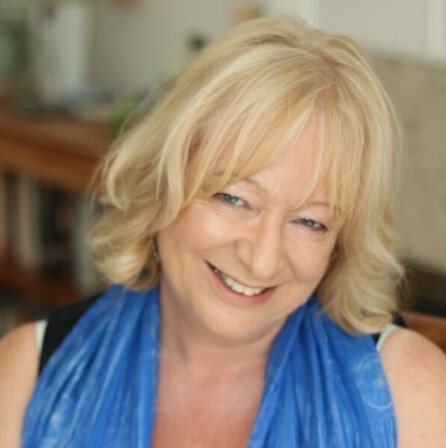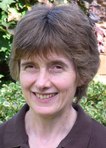5 Questions About Writing With . . . Chris Penhall
Chris Penhall writes uplifting stories set in gorgeous places.  A member of The Society of Authors and the Romantic Novelists Association, she won the 2019 Choc-Lit Search for a Star competition, sponsored by Your Cat Magazine, for her debut novel, The House That Alice Built, and has since written five more books. The House That Florence Left is the fourth in her Portuguese Paradise series.
A member of The Society of Authors and the Romantic Novelists Association, she won the 2019 Choc-Lit Search for a Star competition, sponsored by Your Cat Magazine, for her debut novel, The House That Alice Built, and has since written five more books. The House That Florence Left is the fourth in her Portuguese Paradise series.
How do you discipline/motivate yourself to write, and do you set daily targets?
I am disciplined and I am motivated, but I don’t really have a set time to write or daily targets, although I have tried to work like that. A lot of my work has been deadline driven, with many different projects on a given day, week, or even month, so I’m used to prioritising, adapting, dealing with other things urgently, then making sure I’ve done everything in time. So when I write a novel, which is a long-term project, I behave in the same way.
When I’m working on a book, I strive to write something every day. This doesn’t always work but after six books, I don’t beat myself up about that so much. As far as word counts are concerned, some writing sessions provide a couple of thousand, some provide a couple of hundred, and very occasionally a couple of sentences. But whichever it is, I’m staying connected to the book.
What are the most important qualities required by a writer? Do you have them?
Imagination – all writers have that. Tenacity – you have to really want to do this, in order to ride the waves of success, disappointment, success etc. etc! Also, you have to love writing for the sake of it. You are spending a lot of time in your own head, so you’ve got to enjoy being there…!
How do you market yourself and your books?
I’m still learning how to market myself and the books. My publisher does a lot of marketing, thankfully, which is great as I think it can be a bit overwhelming if you’re not used to it. I have always done things that are related to books and reading, so I’m continuing to do that, but now sometimes as an author, rather than a reader.
I have worked for BBC local radio for many years, and way back in the last century for Radios One and Four, so I lean into my audio experience and background as a way of marketing myself and therefore my books. For instance, I have a community radio programme called Books and Tunes in which I chat to other writers, and before that I made my own podcast called Talking to My Friends About Books – in which I did just that!
I have also hosted events and interviewed other authors at The Essex Book Festival and have been a judge for a short story competition the festival ran in conjunction with the Essex Gardens Trust. A few years prior to that I was a long-list judge for the BBC Essex radio play competition for two years.
And I have a blog on my website in which I feature interviews with authors.
Which writing resources have you found useful, e.g., books, courses, organisations, websites etc.?
I started writing my first novel many years ago and when I got stuck I enrolled on an online course, which helped me develop the characters, the plot and actually get to the end of the book. A few years after that I invested in a mentor with a literary consultancy, and that is what got the manuscript to the level that won the Choc-Lit Search for a Star Competition.
After that I did an online course with Future Learn – because basically I enjoy developing my skills, and I have done one or two writing workshops too. I’m doing one in a few weeks actually.
I find chatting to other writers really helpful, but I have only just joined The Society of Authors and the Romantic Novelists Association.
A top tip for other writers?
Write. Be tenacious. Pat yourself on the back whether you’ve written 5, 50, 500 or 5000 words today. Enjoy it. Remember why you’re doing it. And follow your dreams.
About The House that Florence Left – published October 2024
 Bella Cresswell likes her life organized. But when she inherits her great-aunt Flo’s house in the Algarve, her life gets decidedly disorganized. She flies to Portugal hoping for a quick sale and to return home. Except there is a clause in the will stopping her. Before she can sell the house, Bella must ‘make it better’.
Bella Cresswell likes her life organized. But when she inherits her great-aunt Flo’s house in the Algarve, her life gets decidedly disorganized. She flies to Portugal hoping for a quick sale and to return home. Except there is a clause in the will stopping her. Before she can sell the house, Bella must ‘make it better’.
As she tries to fix up the dilapidated property, Bella discovers the faded walls are filled with the memories and secrets of Florence’s vibrant life. And, as she looks further into her great-aunt’s time in Portugal, she realises, there’s more to making it better than she first thought. Bella finds herself caught up in the charm of the lively Portuguese village, the eccentric and friendly locals and her handsome, yet mysterious, neighbour, Hugo.
But when it’s time to sell and say goodbye will Bella be able to return to her old life?
Or will she discover that some things are meant to be held onto forever?



